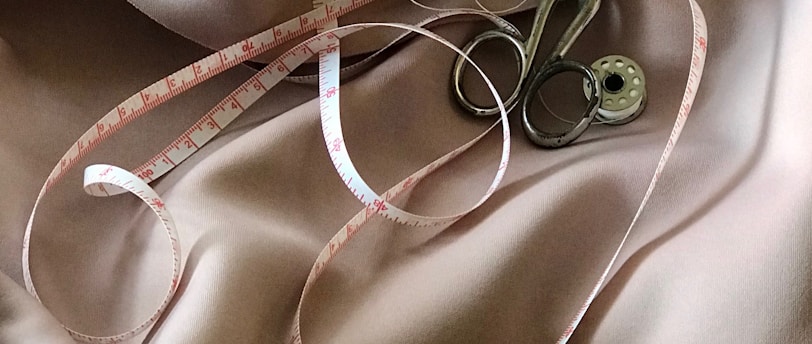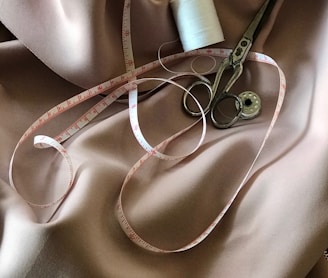Choosing the Perfect Fabric for Your Clothing Products
Discover the essential factors to consider when choosing fabric for your clothing products. From performance and quality to sustainability and cost, this article covers everything you need to know to make the right fabric selection for your clothing line.
CLOTHING MANUFACTURING PROCESS


When it comes to producing clothing products, choosing the right fabric is one of the most critical decisions you'll have to make. Fabric selection determines the overall quality, comfort, and durability of your clothing products. As such, you must take your time to evaluate various fabrics' properties and characteristics to ensure you make the right choice. In this article, we'll explore the essential considerations when choosing fabrics for your clothing products.
Understanding Fabric Properties
Before we delve into the critical factors to consider when selecting fabrics for your clothing products, it's essential to understand fabric properties. Here are some of the primary fabric properties you should know.
Fabric Weight
Fabric weight refers to the amount of fabric per unit area. It's usually measured in grams per square meter (GSM). A higher GSM means a heavier fabric, while a lower GSM means a lighter fabric.
Fabric Texture
Fabric texture is the feel, appearance, and structure of a fabric. Some common fabric textures include smooth, rough, soft, and crisp.
Fabric Stretch
Fabric stretch refers to the degree to which a fabric can stretch without breaking. Some fabrics have high stretchability, while others have little to no stretch.
Fabric Drape
Fabric drape is how a fabric hangs or falls when draped. Some fabrics have a stiff drape, while others have a soft and fluid drape.
Fabric Durability
Fabric durability is the ability of a fabric to withstand wear and tear, washing, and other forms of stress. Some fabrics are more durable than others, making them suitable for specific clothing items.
Factors To Consider When Choosing Fabric
Now that you understand fabric properties, let's look at the critical factors to consider when choosing fabric for your clothing products.
Fabric Performance
Consider the intended use of your clothing products when selecting fabric. For example, if you're producing activewear, you'll need a fabric that's moisture-wicking, breathable, and stretchable. On the other hand, if you're producing formal wear, you'll need a fabric that's wrinkle-resistant, has a good drape, and is lightweight.
Fabric Quality
The fabric quality determines the overall quality of your clothing products. Choose high-quality fabrics that will stand the test of time and ensure customer satisfaction.
Fabric Cost
The fabric cost is an important consideration, especially if you're producing clothing products on a budget. However, don't compromise on quality for cost savings.
Fabric Availability
Consider the availability of the fabric you're considering. Is it readily available in the quantities you need, or will you have to wait for it to be manufactured?
Fabric Composition
The fabric composition refers to the fibers used to make the fabric. Some common fabric compositions include cotton, silk, polyester, and rayon. Each fabric composition has unique properties and characteristics that can affect the overall quality of your clothing products.
Fabric Color
Consider the color options available for the fabric you're considering. Will it be easy to dye or print on the fabric? Will it fade or bleed when washed or exposed to sunlight?
Fabric Sustainability
Consider the sustainability of the fabric you're considering. Is it eco-friendly and made from sustainable materials? Does the manufacturing process have a minimal impact on the environment?
Conclusion
Choosing the right fabric is crucial to the overall quality, comfort, and durability of your clothing products. Consider fabric performance, quality, cost, availability, composition, color, and sustainability when selecting fabric. Take your time to evaluate various fabrics' properties and characteristics to ensure you make the right choice.
Learn More About Clothing Manufacturing
FAQs
Q1. Can I use any fabric for any clothing item?
No. The fabric you choose should match the clothing item's intended use and performance requirements. For example, you wouldn't want to use a heavyweight wool fabric for a summer t-shirt, as it would be too hot and uncomfortable.
Q2. Is it okay to choose a fabric based on cost alone?
While cost is an important factor to consider, you shouldn't compromise on quality for cost savings. Low-quality fabrics may save you money in the short term, but they may also result in dissatisfied customers and returns in the long term.
Q3. What should I look for in terms of sustainability when selecting fabric?
Look for fabrics made from sustainable materials, such as organic cotton or recycled polyester. Also, consider the manufacturing process and whether it has a minimal impact on the environment.
Q4. Can I mix fabrics in one clothing item?
Yes, you can mix fabrics in one clothing item, but it's essential to consider how they will work together in terms of weight, texture, and performance.
Q5. How do I know if a fabric is durable enough for my clothing item?
Consider the fabric's properties, such as its weight, composition, and durability rating, as well as any testing or certifications it may have. You can also do a wear and tear test to see how the fabric holds up over time.
